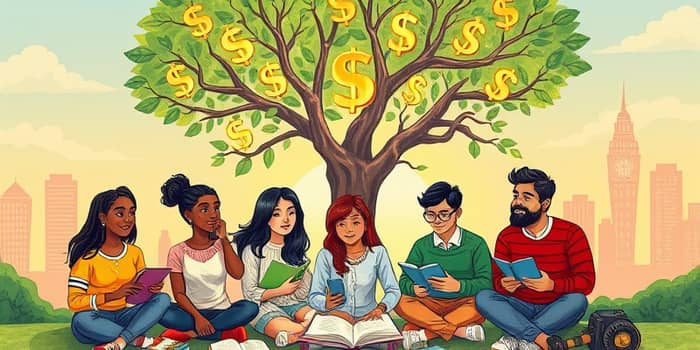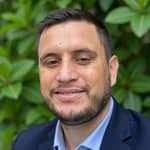In a world where financial decisions shape futures, young adults stand at a crossroads. The gap between desire and access to financial knowledge can determine whether someone thrives or struggles through adulthood.
With only half of U.S. adults considered financially literate and Gen Z confidence dropping, it’s clear we need to bridge this divide now.
Why Financial Literacy Matters
Nearly 9 in 10 adults agree that high school should include personal finance classes. Yet only 31% of teens have access to such courses. This disparity reinforces socioeconomic divides and leaves many young people vulnerable to poor decisions.
Poor financial literacy costs the U.S. nearly half a billion dollars annually. Studies show that financial literacy mandates in high school can improve credit scores and reduce delinquency among 18- to 22-year-olds, translating knowledge into real-world stability.
Challenges Facing Young Adults
Generation Z, ages 18–29, reports the lowest confidence in money management. In just two years, those saying they were “not at all” financially literate rose from 12% to 18%. Meanwhile, student loan debt and rising housing costs heighten the stakes for solid decision-making.
Reliance on family for financial guidance means that young people from less affluent backgrounds often miss out on key lessons, creating an uneven playing field. Without consistent education, many learn through costly mistakes rather than from trusted mentors or formal curricula.
Essential Topics to Master
To navigate adult life with assurance, young adults should build core personal finance skills. Below are the critical areas to focus on:
- Budgeting: Creating and managing a personal or household budget
- Saving: Building emergency funds and setting short- and long-term goals
- Investing: Understanding stocks, retirement accounts, and compound interest
- Credit: Knowing how credit scores work and managing debt responsibly
- Banking: Effectively using checking and savings accounts, online and mobile tools
- Taxes & Insurance: Navigating tax obligations and essential coverage plans
Bridging the Gap: Where to Learn
While only a fraction of states require personal finance courses, a range of resources can fill the void. Digital platforms and nonprofit initiatives are making strides toward universal access.
- EVERFI and Intuit-sponsored online courses designed for high school students
- Programs by the American Bankers Association Foundation and Junior Achievement
- Community workshops and local credit union seminars
Family remains a primary teacher for many teens, but supplementing hands-on experience with structured lessons ensures a comprehensive foundation.
Action Plan for Young Adults
Empower yourself today by following a simple, actionable roadmap:
1. Self-Assessment: Identify your current confidence level and knowledge gaps. Use free online tools to test your understanding of budgeting, credit, and investing.
2. Set Clear Goals: Define what financial success means to you—whether it’s building an emergency fund, paying off debt, or saving for a major purchase.
3. Leverage Technology: Download budgeting apps, subscribe to educational podcasts, and enroll in MOOCs on personal finance. Consistency is key to turning learning into habit.
4. Seek Mentors: Connect with trusted adults—teachers, family members, or financial advisors—who can provide guidance tailored to your circumstances.
5. Practice Real-World Skills: Open a savings account, track spending for a month, or start a small investment. Hands-on experience cements theoretical knowledge.
Looking Ahead: Building a Financially Empowered Generation
By championing financial education, communities and policymakers can create an environment where every young adult has the tools to succeed. Imagine a future where high school graduates step into adulthood with confidence in their financial decisions and an unwavering belief in their ability to thrive.
It starts with each of us—advocating for comprehensive curricula, sharing our own lessons learned, and embracing lifelong money mastery. Together, we can transform the narrative from one of missed opportunities to a collective legacy of financial empowerment.
References
- https://www.aba.com/about-us/press-room/press-releases/new-survey-americans-support-financial-education-in-schools
- https://www.occ.treas.gov/publications-and-resources/publications/community-affairs/financial-literacy-updates/financial-literacy-1st-quarter-2025.html
- https://cricketmedia.com/news-press/crickettogether-news-resources/building-money-smarts-how-early-financial-education-empowers-the-next-generation/
- https://www.weforum.org/stories/2024/04/financial-literacy-money-education/
- https://jagkc.org/68-percent-teens-want-financial-education/
- https://igradfinancialwellness.com/study-validates-effects-of-financial-literacy-on-young-adults/
- https://everfi.com/k-12/financial-education/
- https://civicscience.com/gen-z-financial-literacy-younger-americans-face-uncertainty-but-are-more-proactive-in-saving-and-seeking-financial-advice/










